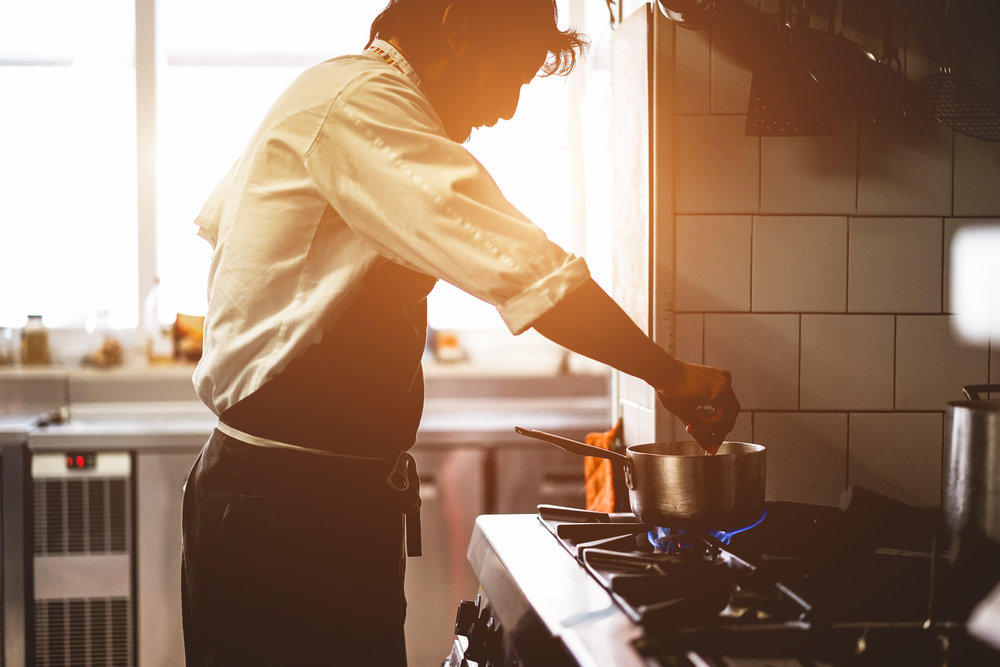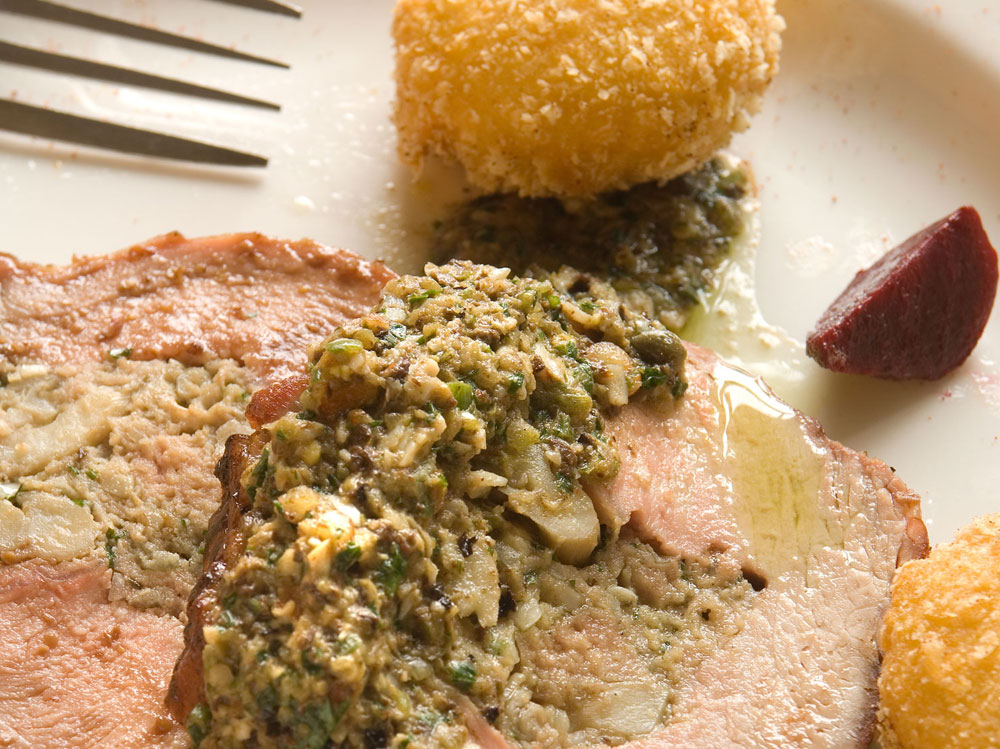
Roasting
Roasting is for tender cuts such as the rib rack, loin, leg and boneless shoulder roast. Before roasting, meat can be rubbed with seasoning. Sear meat to form a brown crust, if desired. To roast, place meat fat side up on a rack in an open roasting pan. Roast until 5 to 10 degrees below desired doneness. Let the roast stand 15 to 20 minutes. Temperature will continue to rise 5 to 10 degrees to reach desired doneness and roast will be easier to carve.
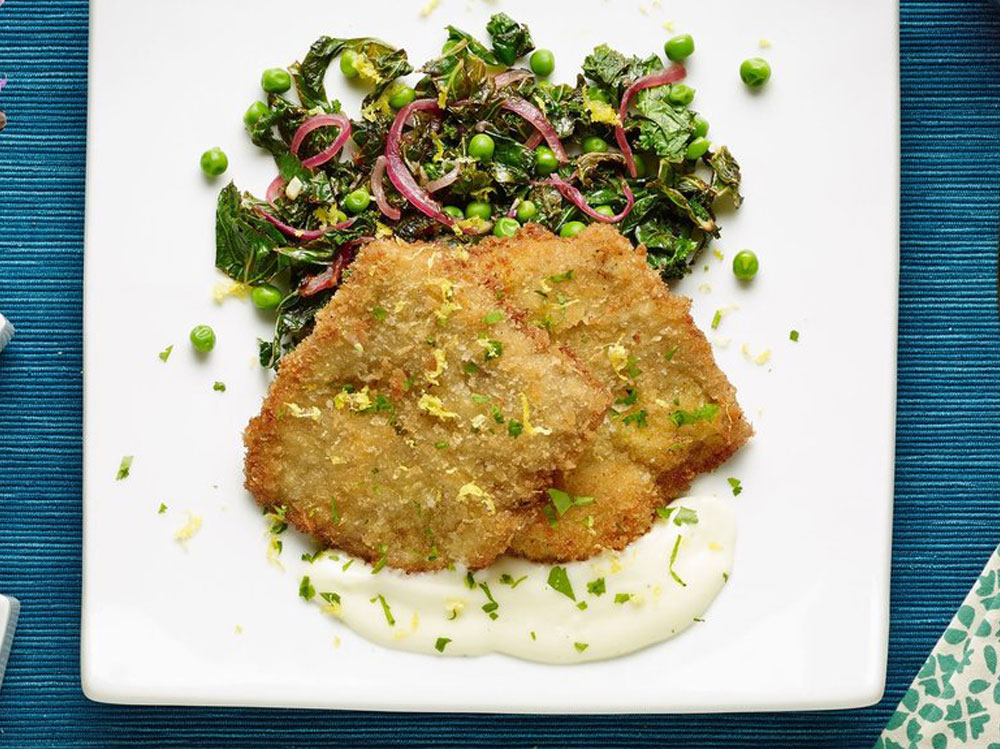
Sautéing
Sautéing is a quick-cooking method ideal for thinner cuts, like cutlets/scallops, ground veal or veal cut into strips. To prevent curling when cooking veal cutlets/scallops, trim excess fat, including the membrane around the slices. If necessary, using a meat mallet, pound veal scallops thin (1/8 inch), and coat with flour or breadcrumbs, if desired. Heat oil or butter in a skillet to medium heat. Sauté cutlets 2 to 3 minutes, turning once. Do not overcook. If desired, remove veal and make or add a pre-made sauce to the pan. Serve hot.
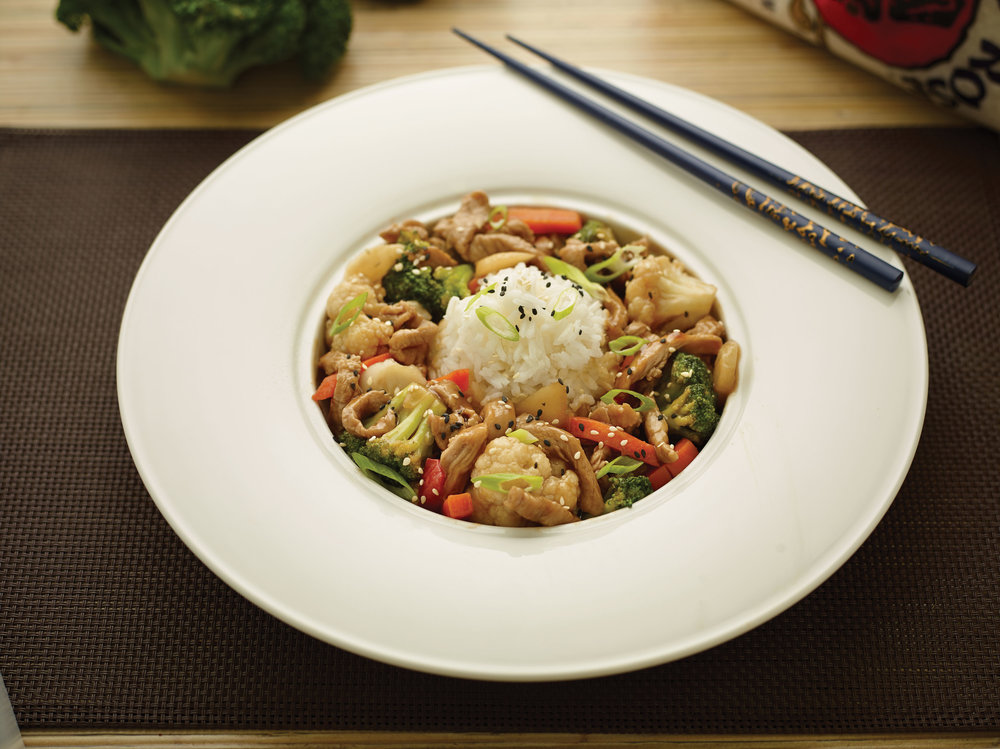
Stir-Frying
Stir-frying is an excellent way to cook uniform pieces of veal with vegetables and other ingredients. Substitute veal for other meats in your favorite recipes. Heat a small amount of oil in a wok or skillet over medium-high heat until hot. Stir-fry veal strips in 1/2 lb. batches (do not overcook), continuously tossing until outside surface is no longer pink. Add additional oil for each batch. Cook veal and vegetables separately; combine and heat through.
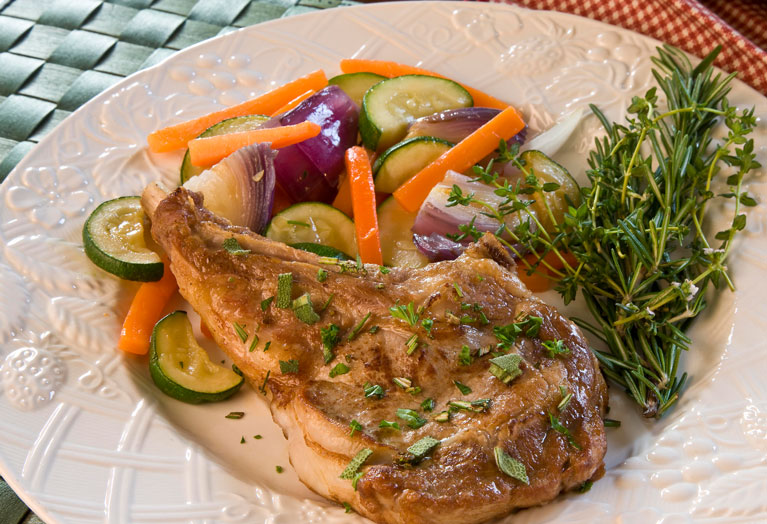
Broiling
In broiling, meat is exposed directly to the heat source. Broiling is best for thinner cuts like chops, steaks and kabobs. The key is to match the rate at which the outside of the meat browns with the temperature inside the meat. Seasoning can be added before or after broiling. Broil on rack of broiler pan so surface of veal is about 4″ from heat. Broil following directions below for medium to well-done, turning occasionally.
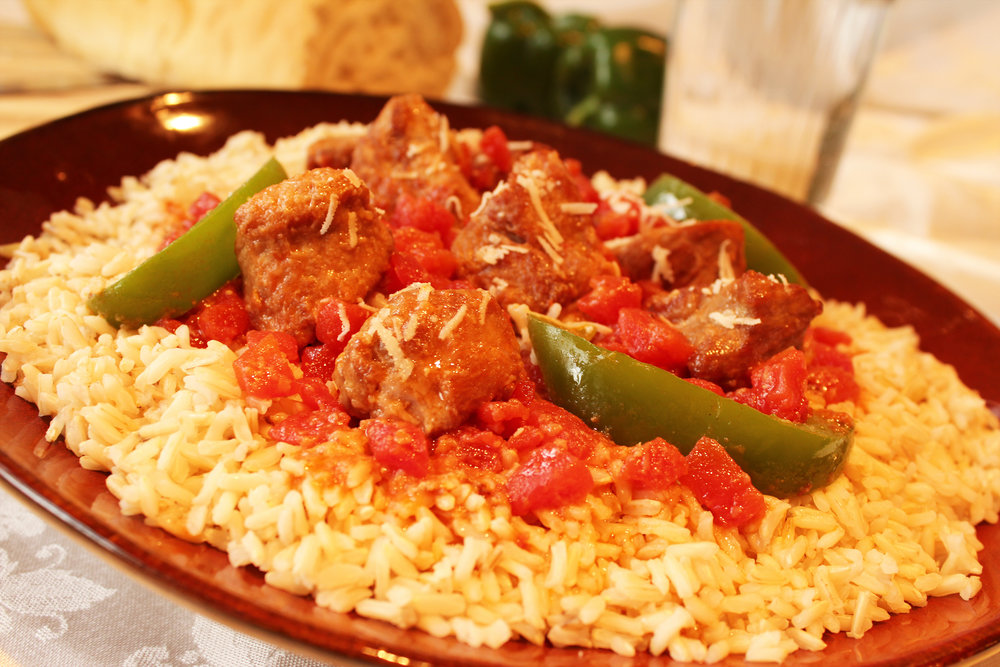
Stewing
When stewing, smaller pieces of meat are covered by liquid and cooked slowly in a closed container until fork-tender. If desired, coat veal lightly with seasoned flour. Slowly brown veal in oil in heavy pan. Drain. Cover veal with liquid. Simmer over low heat on stovetop or in the oven at 325 degrees F until fork-tender.
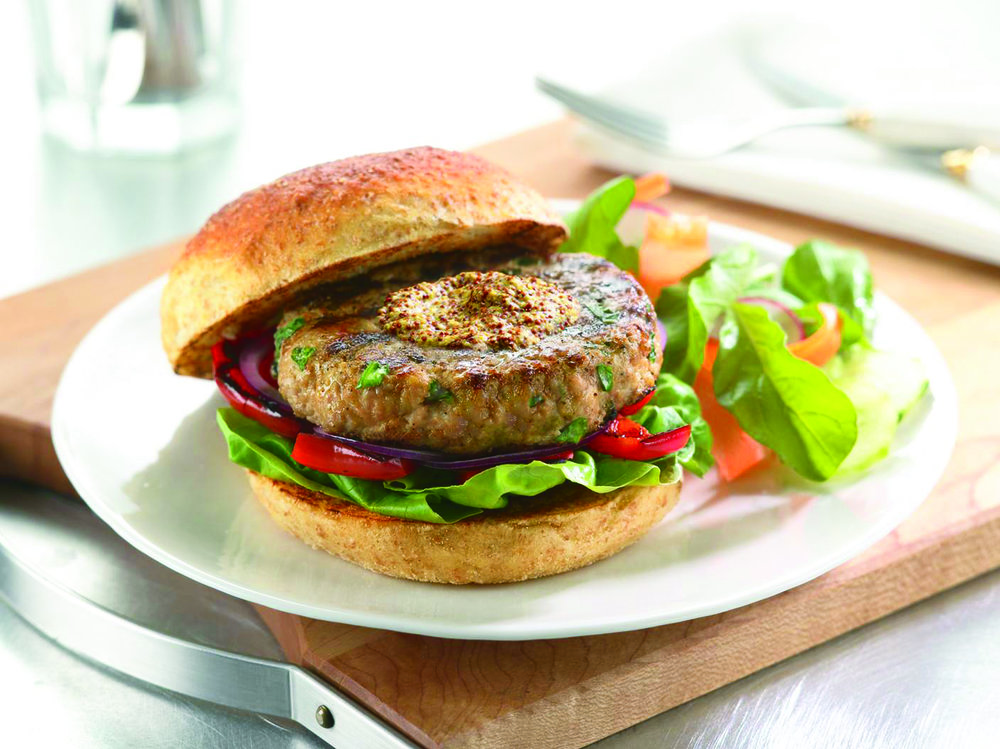
Grilling
Grilling adds rich flavor by browning the meat directly over the heat source. As in broiling, grilling also allows fat to run away from the meat, reducing the overall fat content. Veal chops, medallions, kabobs, and ground veal patties are the best cuts for grilling. Prepare grill (charcoal or gas) according to the manufacturer’s instructions for medium heat. Season veal (directly from the refrigerator) with herbs or spices, as desired. Place on cooking grid. Grill according to recipe, turning occasionally. After cooking, season veal with salt, if desired.
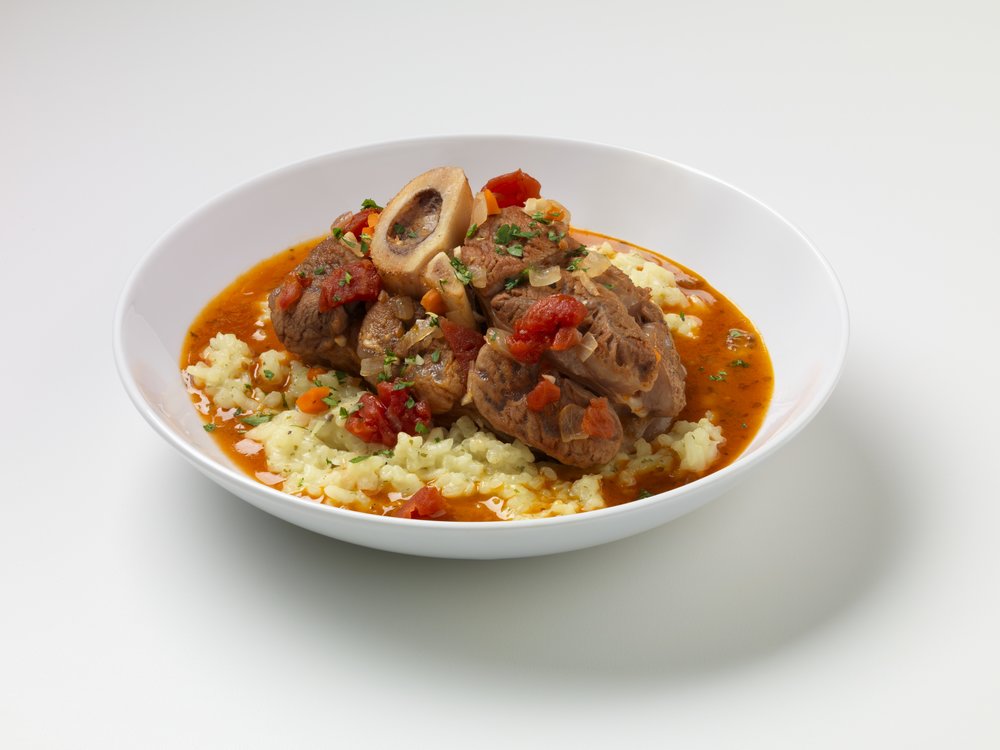
Braising
Slowly cooking in a closed container with a small amount of water is called braising. Braising uses less water than stewing. Veal Osso Buco is usually braised. Slowly brown veal in oil in a heavy pan. Season as desired. Add a small amount of liquid. Cover tightly and simmer gently over low heat on stovetop or in the oven at 325 °F, per chart, until fork-tender. Use the liquid from braising for a sauce.

